
Marsabit National Park: The Oasis of Northern Kenya
Nestled in the arid landscapes of northern Kenya, Marsabit National Park is a hidden gem, offering a unique blend of natural beauty and wildlife. The park is a verdant oasis surrounded by a desert, with lush forests, crater lakes, and rugged mountains. It's a haven for adventure seekers and nature lovers alike. The park is home to a variety of wildlife, including elephants, buffalo, and the rare Grevy's zebra. Bird watchers will be thrilled with the over 500 species of birds that can be spotted here. The iconic Marsabit Mountain, an extinct volcano, provides stunning panoramic views of the surrounding landscape. Visitors can explore the park through guided safaris, hiking trails, and bird-watching tours. The cool, misty forests of Marsabit are a stark contrast to the dry heat of the surrounding area, making it a refreshing retreat. The park is also culturally rich, with the local Rendille and Samburu communities offering a glimpse into traditional Kenyan life.
Local tips in Marsabit National Park
- Visit during the dry season (June to October) for the best wildlife viewing opportunities.
- Pack warm clothing for the cooler, misty mornings and evenings in the park.
- Hire a local guide to get the most out of your safari and learn about the unique flora and fauna.
- Don't miss Lake Paradise, a beautiful crater lake that's a favorite watering hole for elephants.
- Interact with the local Rendille and Samburu communities to enrich your cultural experience.
Marsabit National Park: The Oasis of Northern Kenya
Nestled in the arid landscapes of northern Kenya, Marsabit National Park is a hidden gem, offering a unique blend of natural beauty and wildlife. The park is a verdant oasis surrounded by a desert, with lush forests, crater lakes, and rugged mountains. It's a haven for adventure seekers and nature lovers alike. The park is home to a variety of wildlife, including elephants, buffalo, and the rare Grevy's zebra. Bird watchers will be thrilled with the over 500 species of birds that can be spotted here. The iconic Marsabit Mountain, an extinct volcano, provides stunning panoramic views of the surrounding landscape. Visitors can explore the park through guided safaris, hiking trails, and bird-watching tours. The cool, misty forests of Marsabit are a stark contrast to the dry heat of the surrounding area, making it a refreshing retreat. The park is also culturally rich, with the local Rendille and Samburu communities offering a glimpse into traditional Kenyan life.
When is the best time to go to Marsabit National Park?
Unmissable attractions to see
KWS Ahmed Gate
Explore the natural beauty and wildlife of KWS Ahmed Gate in Marsabit, Kenya - a must-visit park for nature lovers and adventure seekers.
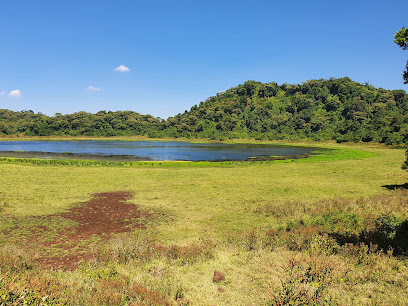
Lake Paradise Special Campsite
Discover the serene beauty of Lake Paradise Special Campsite, a perfect retreat for nature lovers and adventure seekers in Kenya.
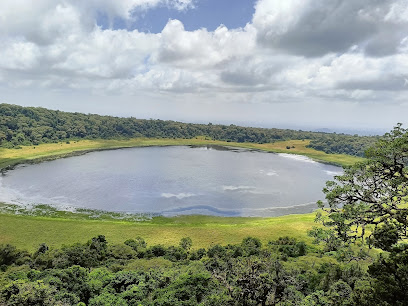
KWS Karare station
Experience the natural beauty and diverse wildlife at KWS Karare Station, a serene national park destination in Kenya.
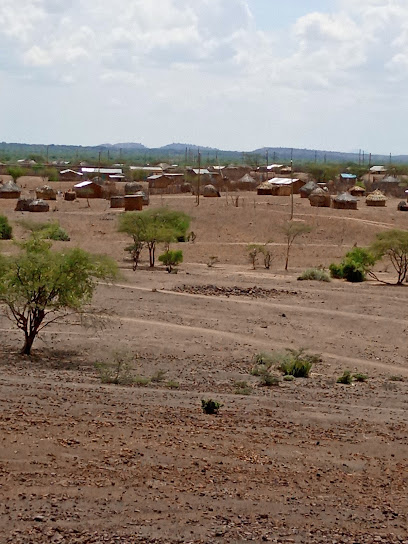
WILD TOUR MARSABIT
Explore the diverse wildlife and breathtaking landscapes of Wild Tour Marsabit, a unique safari park in the heart of Kenya's natural beauty.
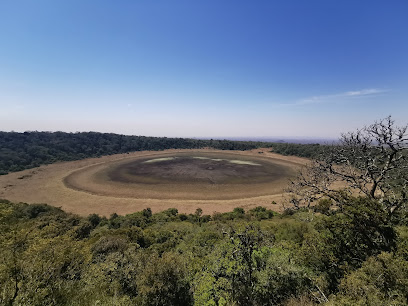
Site of 1998 Helicopter Crash
Explore the historical significance of the Site of the 1998 Helicopter Crash in Marsabit, a poignant attraction amidst Kenya's stunning landscapes.

Kalacha natural spring
Experience the serene beauty of Kalacha Natural Spring in Marsabit, a hidden oasis perfect for relaxation and nature exploration in Kenya.
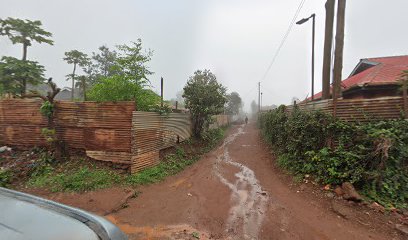
Goff chopa
Explore Goff Chopa in Choba for an unforgettable experience of local culture, vibrant landscapes, and authentic Kenyan hospitality.
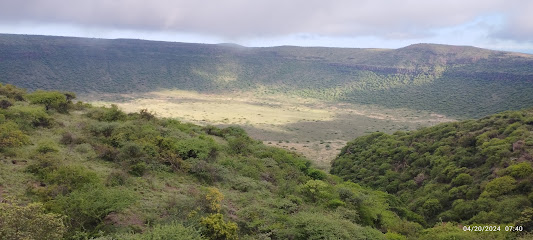
Kofia mbaya hill view
Explore the stunning Kofia Mbaya Hill, a hidden hiking gem in Marsabit, where breathtaking views and cultural experiences await every adventurer.
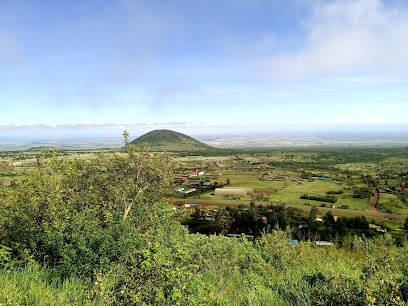
JCT
Discover the natural beauty and tranquility of JCT, a scenic spot in Marsabit, Kenya, perfect for nature lovers and adventurers.
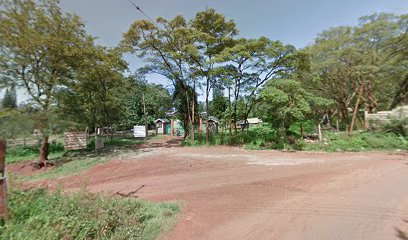
Ichinni Farm
Explore the enchanting beauty of Ichinni Farm, a serene park in Marsabit, perfect for nature lovers and families seeking outdoor adventures.

BURJI SOCIAL CENTER
Discover the Burji Social Center in Marsabit - a vibrant hub for cultural experiences and local community events, offering authentic tastes of Kenya.

Marsabit cbc
Explore the stunning landscapes and rich culture of Marsabit, a hidden gem in northern Kenya, perfect for adventurous travelers and culture enthusiasts.
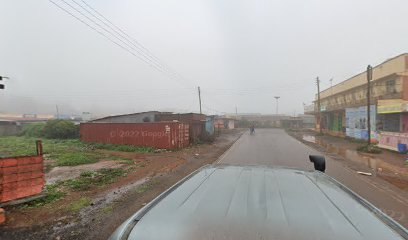
Essential places to dine
Talisman Restaurant
Discover the exquisite fusion of local and international flavors at Talisman Restaurant in Nairobi's charming suburb of Karen.
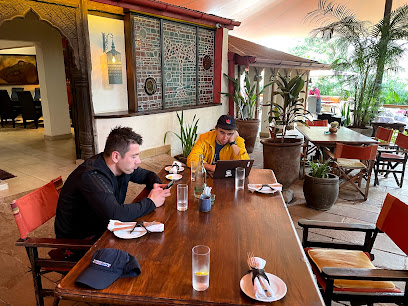
Trout Tree Restaurant
Discover Trout Tree Restaurant in Nanyuki: where fresh trout meets nature's beauty for an unforgettable dining experience.
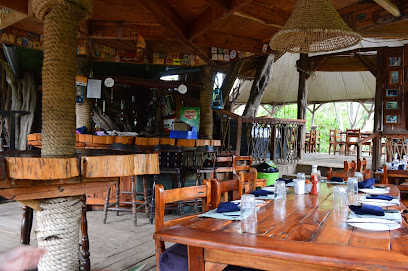
Barney's Bar and Restaurant
Experience exquisite dining at Barney's Bar and Restaurant in Nanyuki - where local flavors meet international cuisine amidst breathtaking scenery.
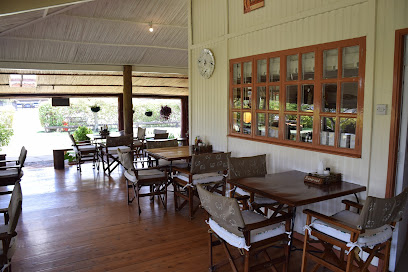
Rift Valley Spur Steak Ranch
Experience the best of African cuisine at Rift Valley Spur Steak Ranch in Nairobi – where every meal is a celebration!
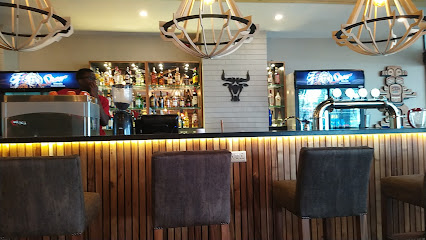
Ranch House Bistro
Discover authentic Kenyan cuisine at Ranch House Bistro in Kongoni - where every dish tells a story.
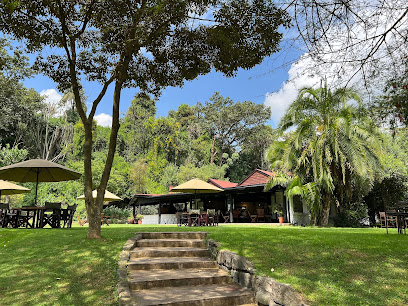
Chicho Hotel
Experience comfort and local charm at Chicho Hotel in Marsabit, where hospitality meets adventure in Northern Kenya.

Big Five Restaurant
Discover exquisite Kenyan cuisine at Big Five Restaurant with stunning views of Nairobi National Park.
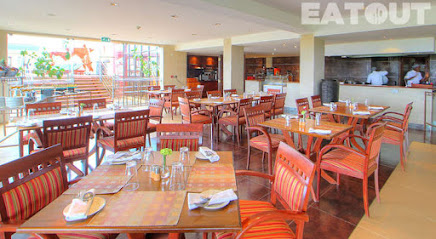
Cafe Kigwa - Safari Park Hotel
Experience exquisite dining at Café Kigwa in Nairobi's Safari Park Hotel—where local flavors meet stunning natural beauty.
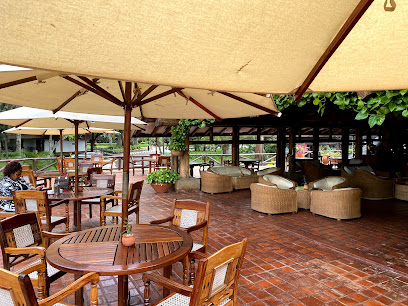
Asali Fast Food Restaurant
Discover authentic Kenyan flavors at Asali Fast Food Restaurant in Marsabit - where delicious meets delightful!
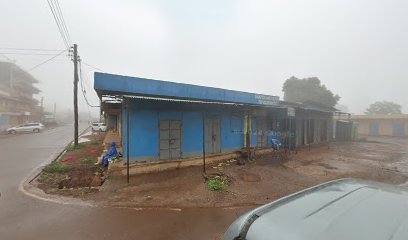
Markets, malls and hidden boutiques
Marsabit National Park
Explore the breathtaking landscapes and diverse wildlife of Marsabit National Park, a hidden gem in Kenya’s natural heritage.
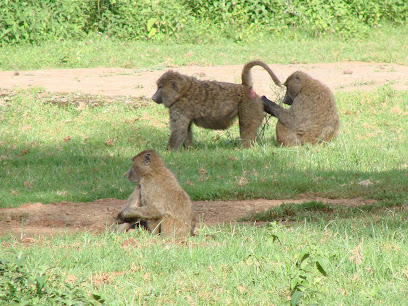
Sand And Rock Resort/hotel
Experience the serene beauty and adventure at Sand And Rock Resort, your perfect getaway in the heart of Marsabit, Kenya.
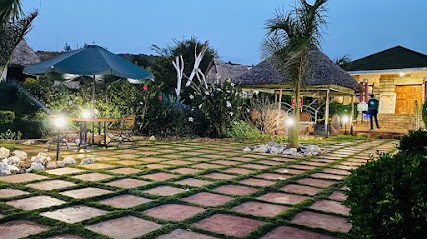
Alfaris Supermarket
Explore the vibrant flavors of Kenya at Alfaris Supermarket in Marsabit, where local culture meets quality shopping.
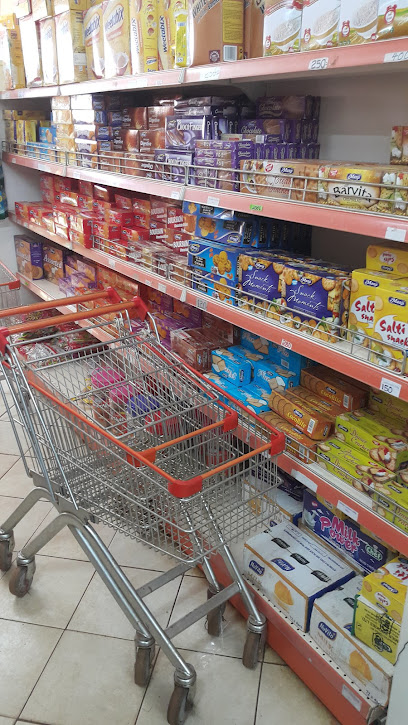
Ebisa Hotel Marsabit
Discover comfort and affordability at Ebisa Hotel Marsabit, your gateway to the natural beauty and vibrant culture of Marsabit, Kenya.
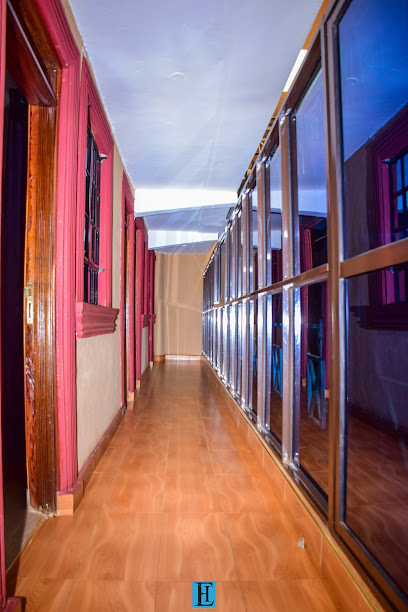
Basmart Supermarket
Experience the vibrant culture of Marsabit at Basmart Supermarket, your go-to spot for local goods and fresh produce.

Hussein Chunfe Hardware And Timbersales.
Discover local craftsmanship and quality tools at Hussein Chunfe Hardware And Timbersales, a unique shopping experience in Marsabit, Kenya.
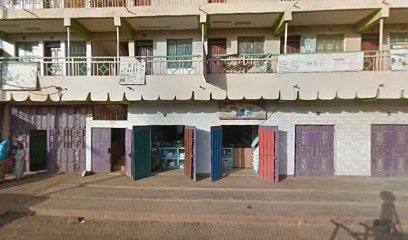
Digital World Electronics
Discover the latest gadgets and local expertise at Digital World Electronics in Marsabit, your go-to electronics store for tech enthusiasts.
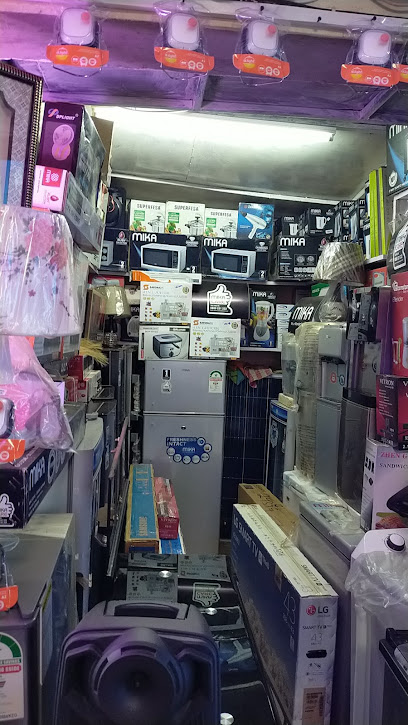
Tullus Enterprises
Discover unique home goods and local craftsmanship at Tullus Enterprises in the heart of Marsabit, a delightful shopping destination for tourists.
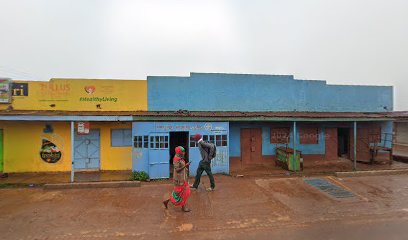
Aguila men's collection
Discover stylish men's apparel at Aguila Men's Collection in Marsabit, where quality meets contemporary fashion in a welcoming atmosphere.
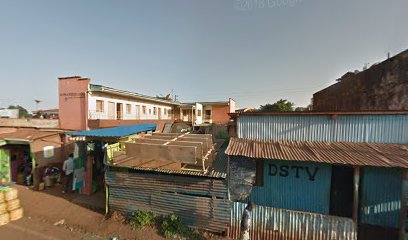
New Emmanuel Shop
Discover unique furniture and local craftsmanship at New Emmanuel Shop in Marsabit, a must-visit for decor enthusiasts and travelers alike.
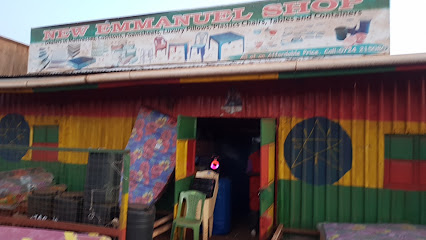
Dimtus Lodge
Experience the essence of local culture at Dimtus Lodge, a vibrant shopping mall in Marsabit, where shopping meets community and tradition.
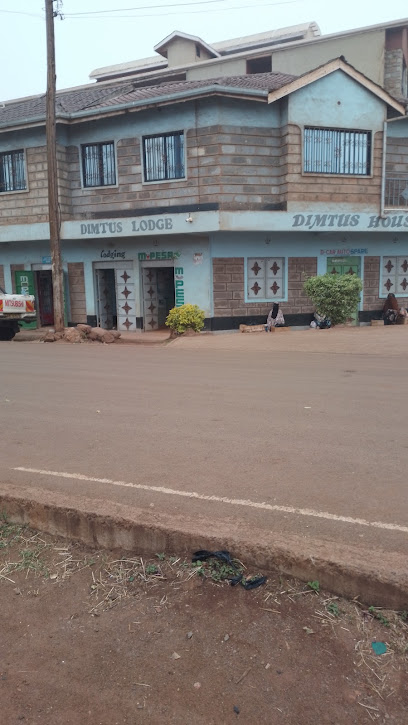
Addis Hardware Marsabit
Explore Addis Hardware in Marsabit for quality tools and materials, connecting you to local craftsmanship and expert advice for your building projects.
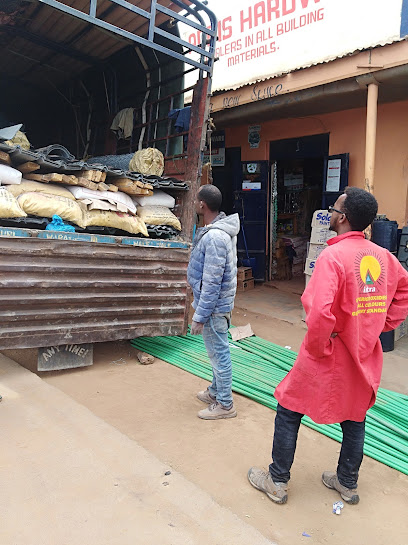
BAZUCH HARDWARE
Discover quality tools and hardware supplies at BAZUCH HARDWARE in Marsabit, a must-visit for DIY enthusiasts and travelers alike.
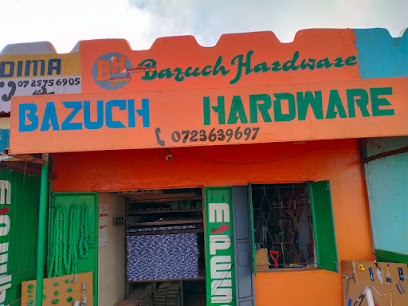
Gibson Ailas Building
Discover unique fashion choices in Marsabit at the Gibson Ailas Building, where local culture meets contemporary style.

Chamo Boutique Ethiopian Fashion
Explore Chamo Boutique in Marsabit for authentic Ethiopian fashion that beautifully blends tradition and modernity.
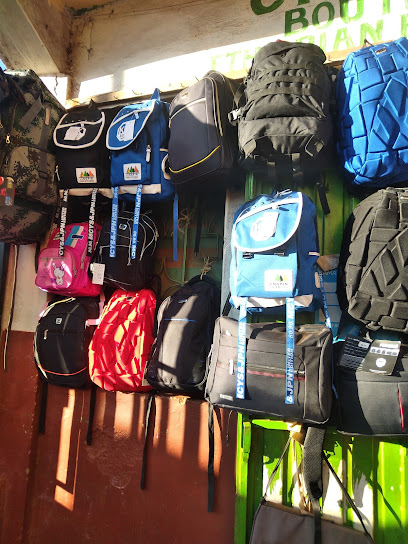
Essential bars & hidden hideouts
Club Palepale
Discover the lively nightlife of Marsabit at Club Palepale, where cool music and vibrant atmosphere create unforgettable moments.
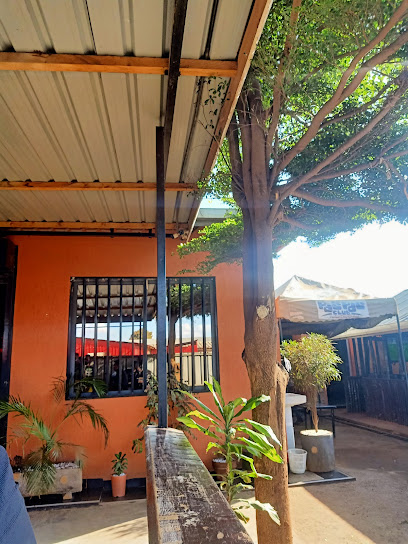
Sakuu Bar and Restaurant
Discover the flavors of Marsabit at Sakuu Bar and Restaurant, where local cuisine meets a welcoming atmosphere in the heart of the region.
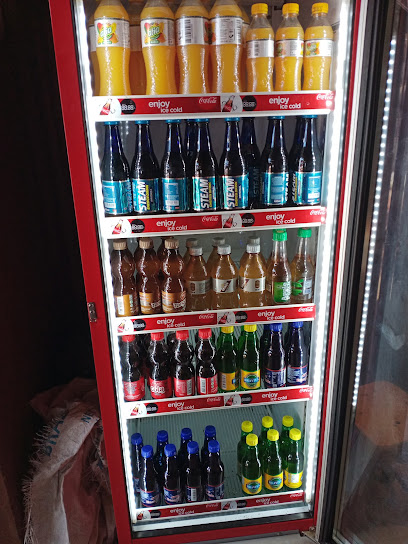
Ababuro Cool Breeze
Experience relaxation and local culture at Ababuro Cool Breeze, a vibrant bar in Marsabit offering a variety of drinks and a welcoming atmosphere.
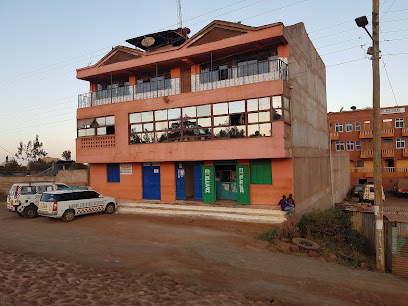
ABABURO HOTEL
Discover the taste of Kenya at Ababuro Hotel in Marsabit, where authentic cuisine meets a warm and inviting atmosphere.
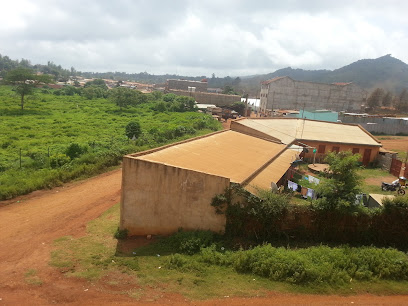
Restaurante Bodea
Experience the flavors of Marsabit at Restaurante Bodea, a culinary oasis blending local and international dishes in a vibrant atmosphere.
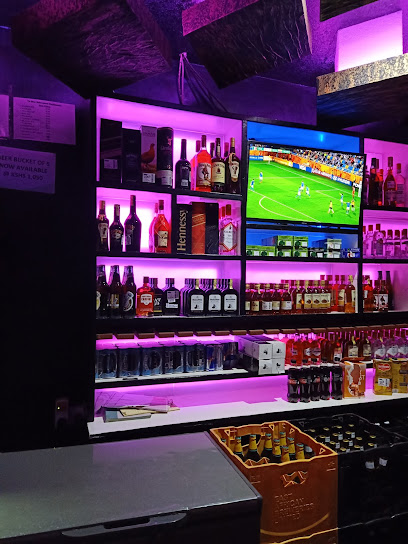
Nabosu Complex Bar
Nabosu Complex Bar: A cozy retreat in the heart of the city, perfect for unwinding with friends and enjoying a diverse drink selection.
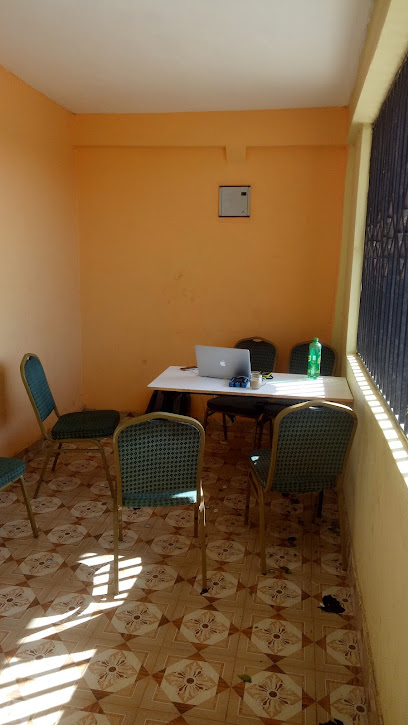
Mountain Bar & Restaurant
Experience local flavors and stunning views at Mountain Bar & Restaurant in Marsabit, a perfect retreat for tourists seeking relaxation.
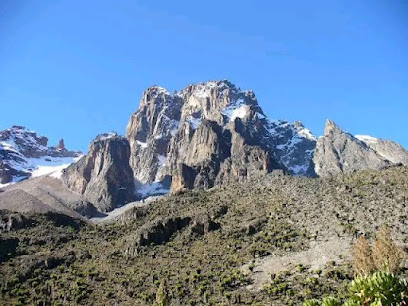
Bar Kararecent Kivuliya Wazeb
Discover the vibrant nightlife at Bar Kararecent Kivuliya Wazeb, a lively bar in Kenya offering a diverse drink menu and local charm.
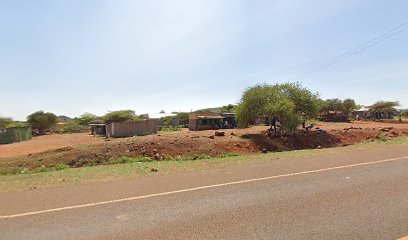
Huka Yattani
Experience the authentic flavors of Marsabit at Huka Yattani, a delightful restaurant serving traditional Kenyan cuisine in a warm atmosphere.

Club Casablanca
Discover the vibrant nightlife at Club Casablanca in Marsabit, where local culture and refreshing drinks create an unforgettable experience.
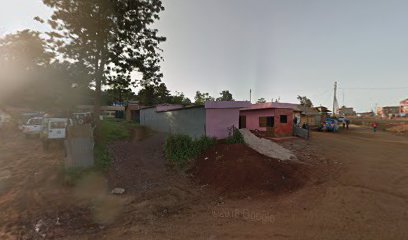
Smart Wine and Spirit Bar
Experience exquisite wines and craft cocktails at Smart Wine and Spirit Bar in Marsabit, where elegance meets local charm.
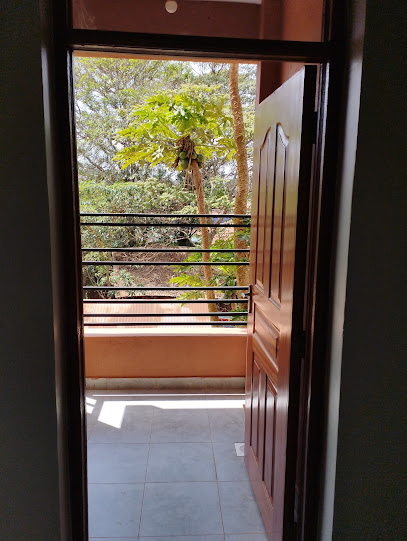
Modern Bar and Restaurant
Enjoy a vibrant atmosphere and a diverse menu at Modern Bar and Restaurant in Parkishon, the perfect spot for relaxation and socializing.
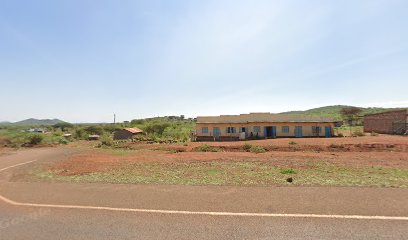
Shemeji Inn
Discover Shemeji Inn in Marsabit, where local culture meets vibrant nightlife, offering a unique bar experience in the heart of Kenya.
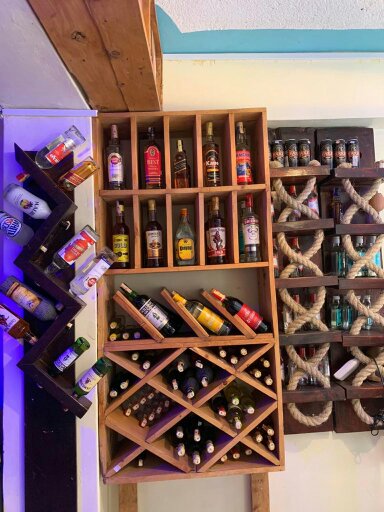
Club city inn and grill
Experience the rich culinary culture of Marsabit at Club City Inn and Grill, where local flavors meet international cuisine in a welcoming atmosphere.
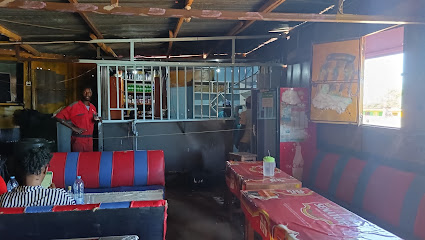
Local Phrases about Marsabit National Park
-
- HelloSalaam
[sa-laam] - GoodbyeKwaheri
[kwa-he-ri] - YesNdio
[n-dee-o] - NoHapana
[ha-pa-na] - Please/You're welcomeTafadhali
[ta-fa-dha-li] - Thank youAsante
[a-san-te] - Excuse me/SorrySamahani
[sa-ma-ha-ni] - How are you?U hali gani?
[u ha-li ga-ni] - Fine. And you?Salama. Na wewe?
[sa-la-ma. na we-we] - Do you speak English?Unasema Kiingereza?
[u-na-se-ma kin-ge-re-za] - I don't understandSieelewi
[si-e-le-wi]
- HelloSalaam
-
- I'd like to see the menu, pleaseNingependa kuona menyu, tafadhali
[nin-ge-pen-da ku-o-na me-nyu, ta-fa-dha-li] - I don't eat meatSi kula nyama
[si ku-la nya-ma] - Cheers!Afya!
[af-ya] - I would like to pay, pleaseNingependa kulipa, tafadhali
[nin-ge-pen-da ku-li-pa, ta-fa-dha-li]
- I'd like to see the menu, pleaseNingependa kuona menyu, tafadhali
-
- Help!Msaada!
[msa-a-da] - Go away!Nenda zako!
[nen-da za-ko] - Call the Police!Piga simu polisi!
[pi-ga si-mu po-li-si] - Call a doctor!Piga simu daktari!
[pi-ga si-mu dak-ta-ri] - I'm lostNimepotea
[ni-me-po-te-a] - I'm illNinaumwa
[ni-na-um-wa]
- Help!Msaada!
-
- I'd like to buy...Ningependa kununua...
[nin-ge-pen-da ku-nu-nu-a] - I'm just lookingNinaangalia tu
[ni-na-an-ga-li-a tu] - How much is it?Ni bei gani?
[ni bei ga-ni] - That's too expensiveHiyo ni ghali sana
[hi-yo ni gha-li sa-na] - Can you lower the price?Unaweza kupunguza bei?
[u-na-we-za ku-pun-gu-za bei]
- I'd like to buy...Ningependa kununua...
-
- What time is it?Saa ngapi?
[sa-a nga-pi] - It's one o'clockNi saa moja
[ni sa-a mo-ja] - Half past (10)Nusu kumi
[nu-su ku-mi] - MorningAsubuhi
[a-su-bu-hi] - AfternoonMchana
[m-cha-na] - EveningJioni
[jo-ni] - YesterdayJana
[ja-na] - TodayLeo
[le-o] - TomorrowKesho
[ke-sho] - 1Moja
[mo-ja] - 2Mbili
[m-bi-li] - 3Tatu
[ta-tu] - 4Nne
[n-ne] - 5Tano
[ta-no] - 6Sita
[si-ta] - 7Saba
[sa-ba] - 8Nane
[na-ne] - 9Tisa
[ti-sa] - 10Kumi
[ku-mi]
- What time is it?Saa ngapi?
-
- Where's a/the...?Iko wapi...?
[i-ko wa-pi] - What's the address?Anuani ni gani?
[a-nu-a-ni ni ga-ni] - Can you show me (on the map)?Unaweza kunionyesha (kwenye ramani)?
[u-na-we-za ku-ni-o-nye-sha (kwe-ne ra-ma-ni)] - When's the next (bus)?Basi lifuata lini?
[ba-si li-fu-a-ta li-ni] - A ticket (to ....)Tiketi (kwenda ...)
[ti-ke-ti (kwen-da)]
- Where's a/the...?Iko wapi...?
History of Marsabit National Park
-
Marsabit National Park, located in northern Kenya, is renowned for its unique geological formations. The park is part of the East African Rift System, a tectonic plate boundary that has shaped the landscape over millions of years. The park's centerpiece, Mount Marsabit, is an extinct volcano that has given rise to a lush, green forest in an otherwise arid region. This geological diversity has created a sanctuary for a variety of plant and animal species, making it a critical area for both ecological and geological studies.
-
The region around Marsabit National Park has been home to various indigenous communities for centuries. The Rendille, Borana, and Gabra people are among the prominent ethnic groups that have historically inhabited this area. These communities have adapted to the harsh conditions of northern Kenya through nomadic pastoralism, relying on their herds of camels, cattle, and goats. Traditional practices and customs, such as age-old rituals and ceremonies, are still observed, offering a glimpse into the rich cultural heritage of the region.
-
During the early 20th century, Kenya was under British colonial rule. The colonial government recognized the ecological significance of the Marsabit region and designated it as a protected area in 1949. This move aimed to conserve the unique flora and fauna, including the majestic elephants and rare bird species. The establishment of Marsabit National Park marked the beginning of structured conservation efforts in the area, laying the foundation for future environmental protection initiatives.
-
Over the decades, Marsabit National Park has become a focal point for wildlife conservation. Various organizations, both local and international, have collaborated to protect endangered species and restore degraded habitats. Anti-poaching initiatives and community-based conservation programs have been implemented to safeguard the park's biodiversity. These efforts have not only helped in preserving the wildlife but have also fostered a sense of stewardship among the local communities.
-
Marsabit National Park is more than just a haven for wildlife; it holds immense cultural significance for the indigenous communities. Sacred sites, such as the Singing Wells, where pastoralists sing to their animals while drawing water, are integral to the local way of life. These practices have been passed down through generations and continue to be an essential part of the cultural fabric. In recent years, efforts have been made to promote eco-tourism, allowing visitors to experience the rich cultural heritage while supporting sustainable development in the region.
Marsabit National Park Essentials
-
Marsabit National Park is located in northern Kenya. The nearest major city is Nairobi, which has Jomo Kenyatta International Airport (NBO). From Nairobi, you can take a domestic flight to Marsabit Airport (RBT), which is about 4 km from Marsabit town. Alternatively, you can take a bus or hire a car from Nairobi to Marsabit; the journey by road typically takes about 10-12 hours. The road conditions can vary, so it's advisable to use a 4x4 vehicle.
-
Within Marsabit National Park, the best way to get around is by hiring a 4x4 vehicle, as the terrain can be quite rugged. Guided tours are also available and can provide a more in-depth experience of the park. Taxis and boda-bodas (motorcycle taxis) are available in Marsabit town for short distances. Always ensure your vehicle is well-fueled and stocked with essentials like water and a spare tire.
-
The official currency of Kenya is the Kenyan Shilling (KES). Credit cards are accepted in some hotels and larger establishments in Marsabit town, but it is advisable to carry cash, especially when visiting the national park and smaller shops. ATMs are available in Marsabit town, but it's wise to withdraw sufficient cash in Nairobi before heading to the park.
-
Marsabit National Park is generally safe for tourists; however, it is always advisable to take standard precautions. Avoid walking alone at night and keep an eye on your belongings. Note that some areas in Marsabit town may have higher crime rates, especially in less populated neighborhoods. Always stay vigilant and be aware of your surroundings.
-
In case of an emergency, dial 999 for immediate assistance. Marsabit town has a local police station and a medical facility. It is recommended to have comprehensive travel insurance that covers medical emergencies. For minor health issues, there are pharmacies in Marsabit town where you can purchase over-the-counter medications. Always keep emergency contact numbers handy.
-
Fashion: Do wear light, breathable clothing suitable for safari conditions. Avoid wearing very bright colors that can attract insects. Religion: Do respect local customs and traditions. Dress modestly when visiting religious sites. Public Transport: Do be respectful and give up your seat to elderly passengers. Don’t argue with drivers or fellow passengers. Greetings: Do greet people with a handshake and a smile. It's polite to use the Swahili greeting 'Jambo'. Eating & Drinking: Do try local delicacies and accept food offerings graciously. Don’t refuse hospitality, as it is considered impolite.
-
To experience Marsabit National Park like a local, visit the local markets in Marsabit town where you can buy fresh produce and traditional Kenyan goods. Engage with the local communities; they are often friendly and willing to share stories about their culture and history. Don’t miss visiting the Marsabit Lodge for a unique dining experience with views of the wildlife. For a more immersive experience, consider staying in one of the community-run eco-lodges.
Nearby Cities to Marsabit National Park
-
Things To Do in Eldoret
-
Things To Do in Kitale
-
Things To Do in Naivasha
-
Things To Do in Nairobi
-
Things To Do in Jinka
-
Things To Do in Arba Minch
-
Things To Do in Kisumu
-
Things To Do in Mbale
-
Things To Do in Awasa
-
Things To Do in Jinja
-
Things To Do in Lira
-
Things To Do in Lamu
-
Things To Do in Moshi
-
Things To Do in Kampala
-
Things To Do in Gulu








